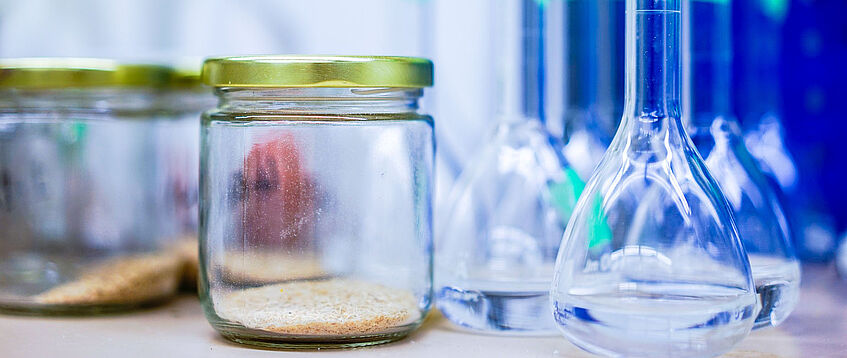Food Chemistry and Physiological Chemistry

Focus on chemistry and toxicology of food (Copyright: CC0 Creative Commons, Pixabay)
Basic and application-oriented research and teaching in the areas of food chemistry and physiological chemistry concentrate on identifying functional food ingredients and exploring components that correspond to molecular mechanisms, as well as their relevance with regard to food safety. In Austria, the Faculty of Chemistry is the only location where a combined expertise in food chemistry and food toxicology is available. In the field of food chemistry, in particular regarding food safety and toxicological evaluation, new synergies may develop – for instance with the Vienna University of Technology, the University of Natural Resources and Life Sciences, Vienna and the Medical University of Vienna. This particularly applies to the research area of food chemistry in the field of the interference of food and food ingredients with chemotherapeutics, mycotoxin research as well as the topical field of nanotoxicology.
With respect to food safety, cellular mechanisms of action of various ingredients (bioactive components, contaminants, nanoparticles) in the human digestive system are researched, using a range of biochemical, molecular-biological, toxicological and analytical techniques.
Physiological chemistry focuses on the identification and characterisation of bioactive food ingredients as isolated compounds and as compounds in food matrices, giving special consideration to food processing.
The proof of bioactivity is established via studies of isolated cells and within the framework of human intervention studies using various food matrices, for which translational approaches are
also used.
The applied techniques record the bioavailability of the target compounds and their bioactivities at the gene-regulatory (DNA and RNA expression) and protein-regulatory levels, and their impacts on the metabolic profile.
The research activities in the areas of food chemistry, food toxicology and physiological chemistry enable perfect cooperative links within the Faculty of Chemistry and with the Faculty of Life Sciences (nutritional sciences, pharmacy, microbiology), the Faculty of Earth Sciences, Geography and Astronomy, as well as the Faculty of Physics. This is reflected in the active part that the Faculty plays in the Chemistry Meets Microbiology research network. Likewise worthy of mention is the cooperation with the Vienna University of Technology, the University of Natural Resources and Life Sciences, Vienna/
IFA-Tulln, the Medical University of Vienna and private business partners.
